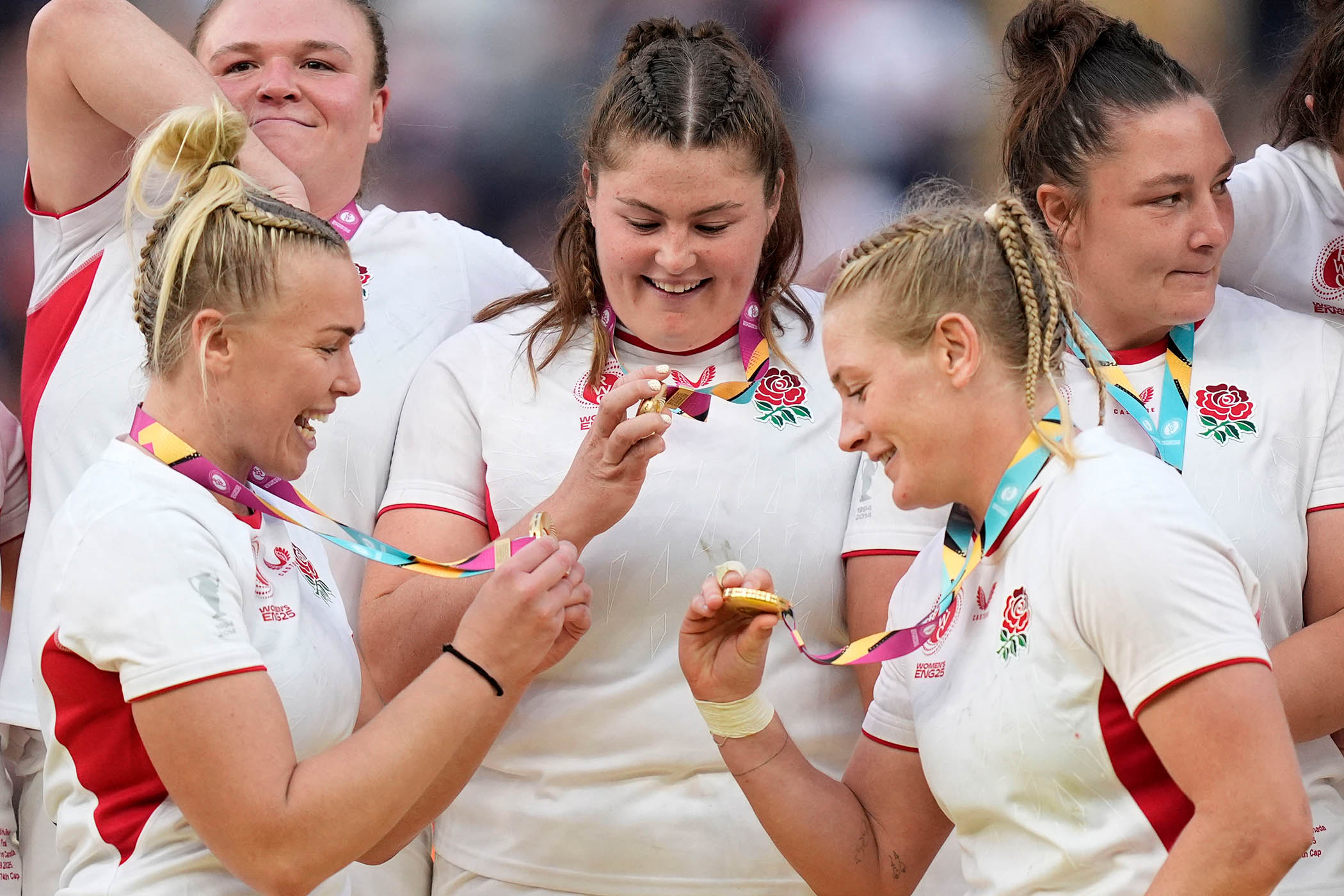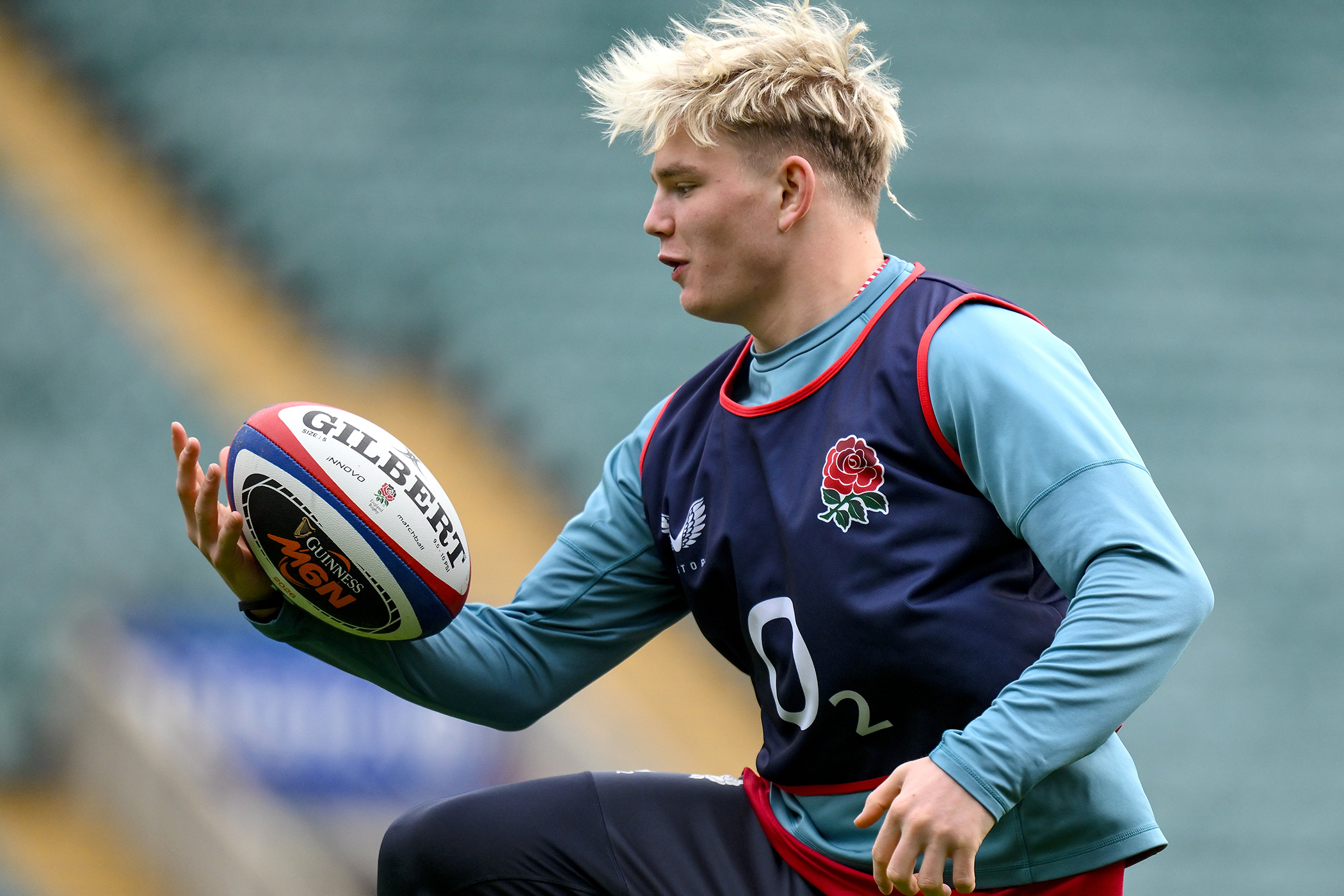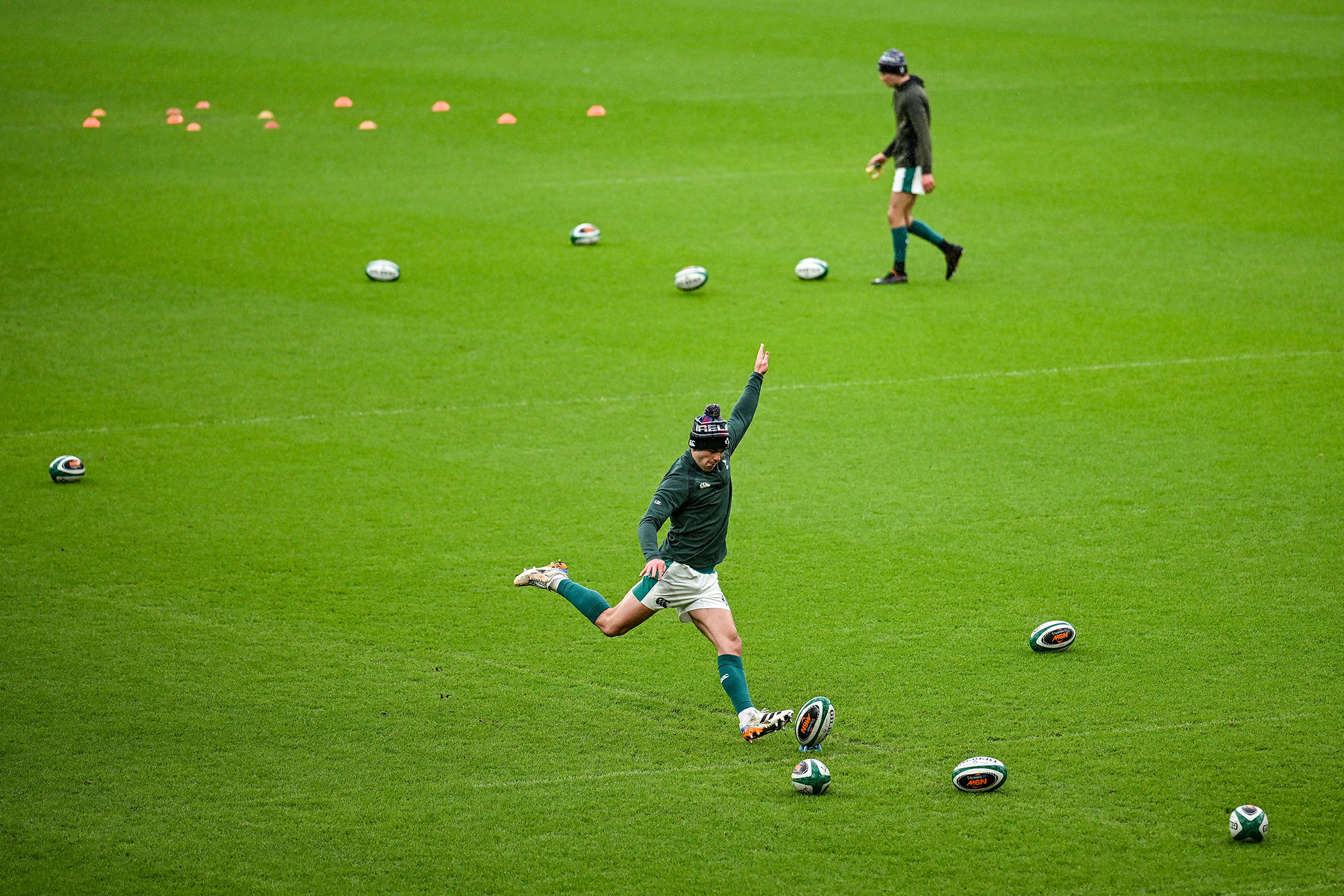England, the country, is gripped by a sense that nothing works, that GP appointments, clean rivers and affordable housing are fading memories. But you can rely on England women’s teams to alleviate what politicians call “declinism”.
On 27 July, England’s footballers defended their European Championship title in Switzerland with a team hailed as a true representation of society. Exactly two months later, on 27 September, the women won the Rugby World Cup at a giant outdoor nightclub better known as Twickenham.
Double European champions in football, world champs in rugby. For the record, the last time England’s men won international tournaments in these sports was 1966 (football) and 2003 (rugby). The comparison is made mainly to illustrate the gush of pleasure any country is entitled to feel when its national teams clean up within 60 or so halcyon days.
Women’s sport is on its own track, with its own vibe and values. It’s not measuring itself against the men’s equivalents. Yet there should be no squeamishness about saying the England women’s rugby team have come to the rescue of their nation’s spirits, as the Lionesses did in Basel. Maybe one day they won’t need the nicknames, Red Roses and Lionesses. They’re already beacons for the men’s teams to learn from.
Sport loves to see itself as a force for good… on days like this it delivers on the hoopla
Sport loves to see itself as a force for good… on days like this it delivers on the hoopla
In a stadium synonymous with a very male feel of Surrey chaps and West Country yeomen (and plenty of female fans too), England’s women achieved far more than just their first World Cup win since 2014, and their third in all. They validated something England, or Britain, is very bad at: infrastructure investment for the specific purpose of growth and the common good.
This is an England team designed through full-time professionalism in 2019 to get ahead of the rest of the world. Until they beat Canada 33-13, though, an unsettling pattern of near-misses was taking hold. This was their seventh consecutive World Cup final and another defeat might have made the Rugby Football Union’s investment seem vulgar.
Instead, in front of an 81,885 crowd that set both a numerical record and a fresh level of enjoyment at HQ, England nullified the pressure of being well-funded hosts against a side that raised £550,000 through charitable giving to match the tournament preparations of richer nations. The RFU’s revenues are 20 times the size of Rugby Canada’s.
Like Abby Dow, Zoe Harrison, Amy Cokayne, Abbie Ward and Zoe Aldcroft, Ellie Kildunne was present when England lost to New Zealand three years ago. This is a side of pummelling forward power and set-piece prowess, but many will prefer to take from this day the memory of Kildunne’s eighth-minute try as the embodiment of how creative rugby can be (and often isn’t).
Kildunne glides so beautifully you can hardly believe her studs touch the grass. From the full-back position her feints and running are as one – a friction-free marvel of momentum. Her directional changes come at no cost to her speed or rhythm. It was that grace that produced England’s first try, a hall of fame score that deflated Canada.
The power of such a try goes beyond the scoreboard. It’s felt by the opposition in the gut, the senses. Kildunne was showing Canada what England were capable of, planting doubt in the mind of a team who rode the underdog wave past the mighty New Zealand and into the final.
Newsletters
Choose the newsletters you want to receive
View more
For information about how The Observer protects your data, read our Privacy Policy
English sport tends to be at its best when the country throws money at it: the men’s 2003 Rugby World Cup win, the Olympic gold rushes of 2012 and 2016 in London and Rio. Even football’s Lionesses could be said to benefit from big club and Football Association infrastructure strength. And now the Red Roses have delivered on a six-year project of central contracts and healthier salaries.
But let’s not make this all about the money. We don’t watch tournaments to see this budget fight it out with that budget, however decisive that often is. Sport loves to see itself as a force for good, a recipe for togetherness and joy that can intoxicate whole countries. On days like this it delivers on the hoopla.
DJs, luminous flashing posts, fireworks and a festival vibe all spoke of a sport trying desperately to manufacture “profile”. Fair enough, but the rugby had already done the job, with 440,000 tickets sold, more than three times the number at the previous World Cup.
As England proved their point, women’s rugby wove a transformative tournament out of British enthusiasm for huge cultural and sporting events. Sometimes it all comes together. Now the challenge is to treat these standards as the norm, with improvement the next goal and regression unthinkable. Canada played their own grand part in this fitting climax to a tournament that surpassed even the most optimistic predictions.
The matches alone can’t explain the rise in audience numbers. The organisers deserve credit for telling the stories of the players, making tickets affordable, spreading the schedule around England and presenting games with conviction.
The last word was the Red Roses padding around the Twickenham pitch as the sun set on the arena but not on them. They are a team heavily invested in, vindicated and victorious. At least some things work.
Photograph by Andrew Matthews/PA Wire



